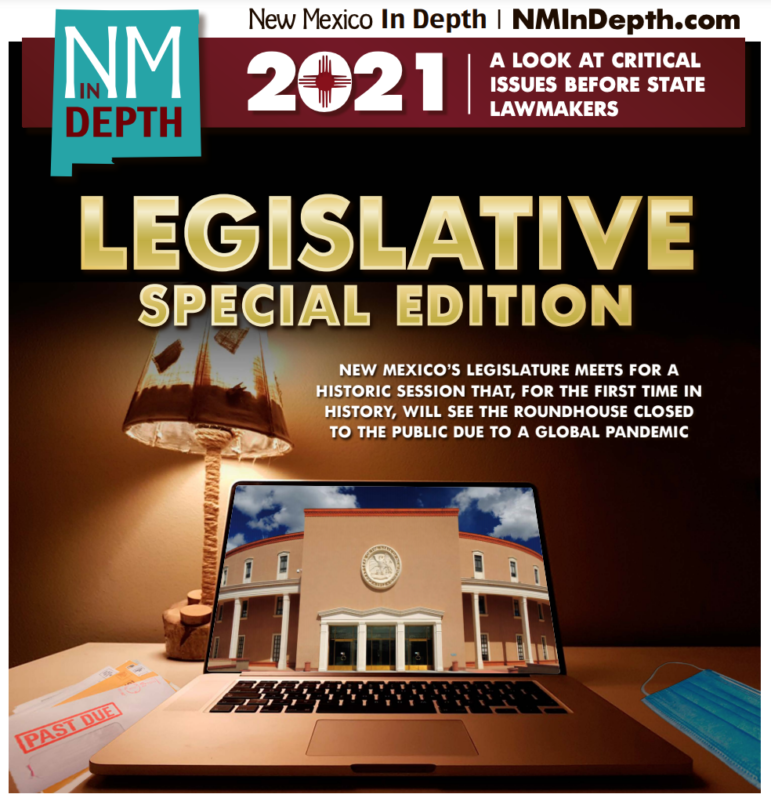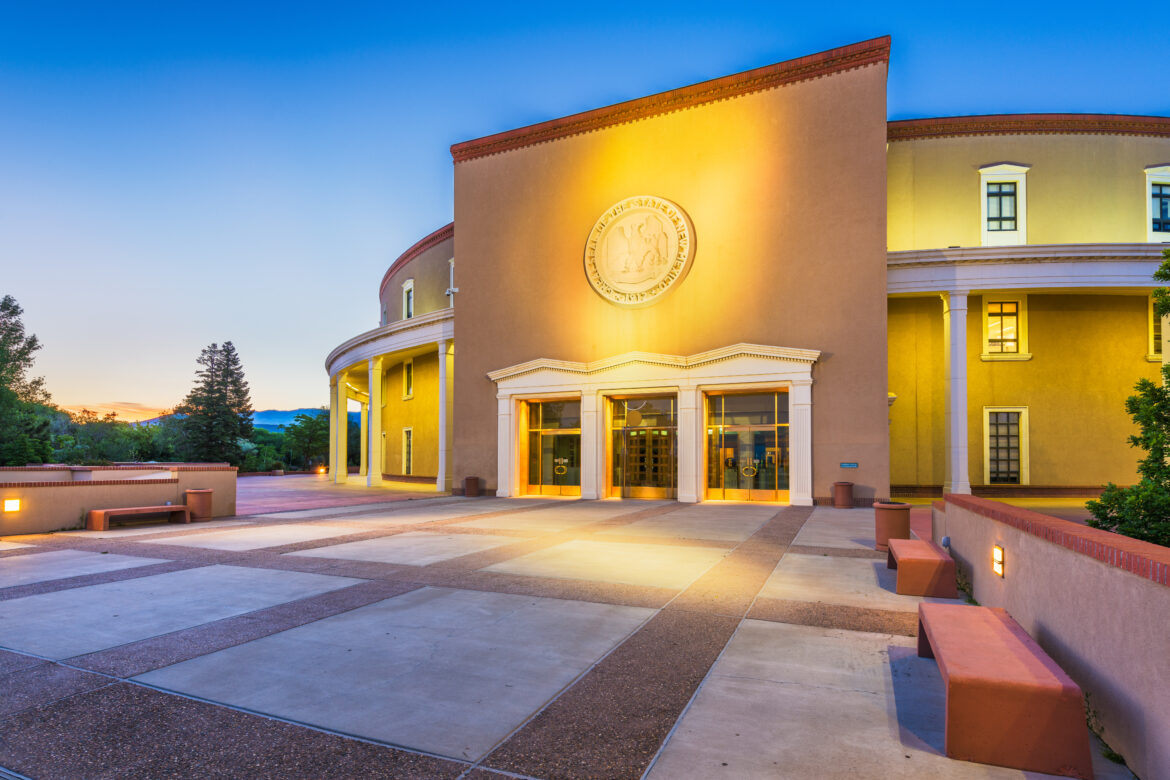Lawmakers and reproductive health advocates believe the time is ripe to remove a criminal abortion law from New Mexico state statute.
First step: the reintroduction of a bill during the 2021 legislative session that would repeal a 1969 law that, while unenforceable due to the U.S. Supreme Court 1973 Roe v. Wade decision that protects the right to an abortion, remains one of the most punitive of its kind in the country.

Sponsors of the abortion legislation as well as healthcare advocates say the makeup of the state Legislature, public opinion on abortion access and shifting support at the federal level indicate that the moment is right for repealing the law that severely restricts and criminalizes abortion in New Mexico.
But that momentum doesn’t mean it will be easy. Opponents are already preparing for a fight.
The effort to repeal the 50-year-old state law has gained urgency in New Mexico since the composition of the U.S. Supreme Court shifted to the right in recent years, creating fear that a majority of justices would overturn Roe v. Wade. Should that happen, state laws would govern abortion access, entirely.
Before the Roe decision, “my personal friends would have to risk their lives trying to get access to abortion,” said Rep. Joanne Ferrary, who said she would again spearhead the effort to overturn New Mexico’s abortion law. “Today, abortion is healthcare. And we don’t want to go back to [those] days. Healthcare should be a right.”
A 2018 poll and report by Albuquerque-based organization Forward Together and Latino Decisions focused on rural New Mexicans found that 74% of respondents agreed that “personal decisions about abortion need to remain with New Mexican women, their families and their medical providers.” Support held across political affiliations and religious identity – 71% of religious adults supported personal choice in reproductive health matters, according to the Latino Decisions poll. A 2020 poll of Native Americans in New Mexico by Latino Decision found majority support for legal abortion.
An earlier 2014 Pew Research Center poll indicates that a majority – 51% – of adults in New Mexico support access to abortion in all or most cases.
On abortion legislation, New Mexico is unique – the state has some of the broadest protections for access to abortion, yet contains a criminal abortion law on its books.
Ferrary’s forthcoming bill will be based on the 2019 House Bill 51, which proposed repealing the New Mexico criminal codes that punish providers of abortion. An amended version of the bill passed in the House of Representatives but died in the Senate with a handful of Democrats joining Republicans for a majority. But in November, seven Democrats joined the Senate who, unlike their predecessors, will likely support the repeal measure.
According to Ferrary, the bill aims to repeal sections of New Mexico state statute that define exceptions to the abortion ban and make performing an abortion a fourth-degree felony. In 2019 members of the Senate Judiciary Committee decided against trying to remove section 2 of the current law, which allows for religious refusal. Ferrary said she and colleagues are still deliberating whether to address religious refusal in their 2021 bill. (Since this article was written for New Mexico In Depth’s special legislative print edition, the abortion repeal effort has coalesced in a bill sponsored by Sen. Linda Lopez, D-Albuquerque, and Sen. Peter Wirth, D-Santa Fe.)
***
The 1969 law criminalizes providers of abortions, with exceptions only in the cases of incest, rape, or if a pregnancy would result in serious birth defects or risks to the woman’s life or health.
A patient seeking an abortion would need to have a special hospital board assembled at the hospital where the procedure is being requested to evaluate the given medical justification. But the law’s religious exemption clause holds significant power to override that. Under it, a hospital would not be required to form a special hospital board or, even in the case of forming one that approves the procedure, the hospital or its providers retain the right to refuse to offer abortion services.
Despite the nearly 50 years since the law had teeth, the weight of its implications lingers.
“Two words: Supreme Court,” said Vicki Cowart, CEO and President of Planned Parenthood of the Rocky Mountains, which operates health clinics across the region, including four in New Mexico, two of which offer abortion services.
In Cowart’s words, the death of Supreme Court Justice Ruth Bader Ginsburg in September and the subsequent appointment of Justice Amy Coney Barrett show that “the safety net that we’ve counted on at the Supreme Court is really gone now.”
Meanwhile, a slate of court cases – 17 by one expert’s count – pertaining to abortion bans or restrictions have been filed in courts across the country. Any one of which could prompt the U.S. Supreme Court to revisit the Roe decision. Meanwhile, in 2019, national Pew Research and Kaiser Family Foundation polls found a majority of the U.S. public supports legal abortion. And while there is scarce New Mexico specific data about Catholic opinions about abortion, national Pew Research polling indicates a majority of Catholics believe it should be legal.
Some of those court cases propose time limits as strict as a ban after six weeks, others suggest waiting periods or multiple trips to the same doctors before receiving an abortion.
“And this is not just for the procedural abortion that would be done inside a health center, but also the medication abortion which does not require that level of medical interaction,” Cowart said.
All these obstacles exist in states across the country. They sometimes include mandated counseling that requires providers to present information with no scientific support, like warnings about abortion’s links to breast cancer. In New Mexico, there are no major abortion regulations found in certain other states, like waiting periods or parental notification, other than a partial-birth abortion ban passed in 2000. But if the U.S. Supreme Court disavowed the Roe v. Wade decision, most abortions would automatically become illegal in the state.
***
In New Mexico, advocates believe a new slate of senators joining the legislature creates a pathway for Democratic initiatives like an abortion decriminalization bill to get passed.
“I think the voters have made it clear. They sent a clear message that they want to remove this old abortion section [that criminalizes] doctors and women for having an abortion,” Ferrary said of the conditions that make her hopeful for the forthcoming bill.
Not only will the statehouse be bluer in the upcoming session, but it will be more female. Over half of the state House will be made up by female legislators – 37 of 70 seats.
On the shift, Planned Parenthood’s Cowart had an insight: “In the states that have that kind of makeup, with half of the legislature being female, the tone and tenor are different, the conversations are different, and family stories and people’s stories get a lot of weight,” she said.
But it won’t be a slam-dunk. A fight to oppose the bill is underway.
“A complete repeal is not the answer to updating New Mexico’s abortion laws…Current law ensures abortions are only performed by licensed physicians and protects medical professionals and faith-based hospitals from being forced to participate in abortion procedures against their conscience,” said Family Policy Alliance of New Mexico Policy Manager Stephanie Curry in a written statement.
“As in 2019, we expect thousands of New Mexicans to voice their opposition to what will again be regarded as one of the most extreme pro-abortion bills in the country,” Curry said. “This is too important a matter to have the Legislature and the Governor try to fast-track a bill through the process.”
